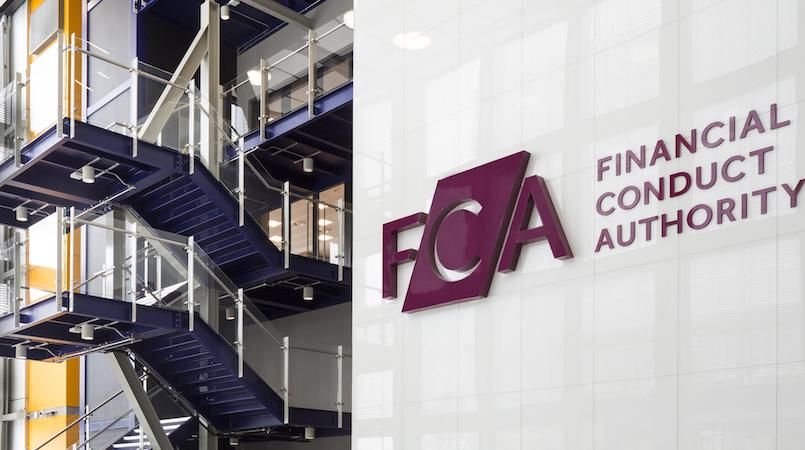UK financial regulators have defended a crackdown on asset managers that they say use unclear labels to greenwash their investments, and dismissed industry suggestions new rules would cause an ESG-related investment bubble or a mass of fund closures.
Representatives from the Financial Conduct Authority (FCA) met in London yesterday (22 February) to discuss the Sustainability Disclosure Requirements (SDR) for fund firms with MPs on the Treasury committee.

Sacha Sadan (pictured left), director of ESG at the FCA, said the new rules were necessary to protect consumers, and give investors confidence that when they invest in a sustainable investment product it is genuinely sustainable.
He told MPs: “If [funds] don’t hit the trust criteria for consumers and they’re not doing what they say they’re doing on the tin, they shouldn’t have the [sustainable] label.
“If someone is selling a [sustainable] product, and by the way they’re probably charging a little bit more for it, they should be able to have a metric to say how they’re doing that green measure.
“This will be a strong standard. If we’re going to build a world-leading standard, we need to make sure [asset managers] say what they do.”
The FCA dismissed claims from a panel representing the fund management industry – including Chris Cummings, chief executive of the Investment Association, James Alexander, chief executive of UKSIF, and Kate Levick, associate director of sustainable finance at E3G – the new rules would cause a risky “market dislocation”, and lead to a dangerous rush of investor money into a handful of funds that meet its stricter labelling requirements.
Mark Manning, technical specialist for sustainable finance and stewardship at the FCA, told MPs: “We have thought about whether there is potential for market dislocation.
“We think the risk is reduced by the fact we are not specifying the standard of what constitutes a sustainable activity, we’re allowing the firm themselves to determine what benchmark they are using for sustainability.
“It’s got to be a credible standard. It’s got to be robust. It’s got to be evidence based. It’s got to be transparent. But we are not the arbiters of sustainable activity. There will be quite a wide variety of different credible standards. And the fact that it’s not a single one should mitigate the risk of bubbles emerging.”
Greenwashing crackdown
The FCA has proposed a package of measures aimed at clamping down on greenwashing. This includes sustainable investment labels, disclosure requirements and restrictions on the use of sustainability-related terms in product naming and marketing.
MPs heard how the FCA spoke to 7,000 consumers about current ESG investing labels, who reported “they feel confused at the minimum…and use larger words like greenwashing” about supposedly ‘green’ funds that still invested in fossil fuels, for example.
Under the proposed rules funds will fall into three categories of sustainability; ‘focus’, ‘improvers’ and ‘impact’. The onus is on asset managers to prove to the FCA they are meeting their own sustainability criteria for their chosen label. Funds outside these categories will simply have no sustainability label.
Asked by MPs if he was concerned that if the sustainable disclosure requirements are introduced a considerable number of funds will have to close, the FCA’s Manning said: “I’m absolutely not.”
He added: “There are funds out there that maybe five years ago were at the vanguard of ESG that are not now and they certainly won’t be by 2024 [when the new rules are planned to come into force]. They will have a chance to evolve, or if not they can still carry on selling their funds, but just not with those [sustainability] terms.
“They will not have to close, but it will be consumers’ choice to decide whether they’re happy with what they’re doing, or whether they want to move to a different fund. And that’s what happens in capitalist money markets.”
See also: – SDR: The implications for DFMs
Green fund bubble

In an earlier session on the same topic, IA chief Cummings (pictured left) told MPs the FCA’s proposed stricter rules for funds created the risk of “different potential bubbles in different parts of the value chain”, including ESG data providers, and a “rush into a narrow range of funds”.
He said: “We’ll then have that wall of money chasing the existing supply of recognised green investments.
“There are second and third order consequences we just need to think through. I don’t think any of them will be catastrophic. They’re all manageable, but they need to be done in a really planful way.”
Cummings also criticised the FCA for omitting financial advisers in the scope of the new rules. He said: “It would have made a lot more sense to have done financial advisers, the fund industry and investment platforms at the same time. Then we would have had a clearer view of what the potential bubbles would have looked like.”
But Levick, representing climate think tank E3G, echoed the regulator in dismissing concerns of an ESG investment bubble being triggered by the new FCA rules.
She told MPs: “There’s a lot going on in ESG markets, and I’m sure there would be some effect from there being some firms with the [FCA sustainable] label and some without the label, but I find it hard to believe that would be terribly material.
Levick added talk of bubbles implies there is going to be no more assets to invest in, “when actually there’s a great deal of measures to expand this whole [sustainable investment] market and keep supply coming at the same time as demand”.
She said: “The FCA is actually trying to rationalise and calm the market, by making it clear what is or is not a valid and credible ESG objective. Over time this should help to calm bubbles rather than create them. These measures have been proposed primarily for consumer protection.”
See also: – FCA sustainable fund label proposal nuances hammered out by industry
‘Too much trouble’
Angela Eagle, Labour MP for Wallasey, one of the MPs on the Treasury committee, in response to his claims 60% of UK investment funds would be excluded from the FCA’s new labelling system for not being sustainable, criticised the IA’s Chris Cummings for giving “the impression…you wish it will all go away and it’s all too much trouble”.
She added: “That seems rather odd to me. If you actually want to drive investment into properly green, properly regulated funds that aren’t lying about their green credentials, surely you have to have standards that allow that to happen. And by definition, not all of the current existing funds are going to be able to fit into that.”
Cummings responded that he was concerned about the speed of the new rules, which are planned to be implemented from June 2024, and whether both consumers and the investment industry would be ready in time.
He said: “What we’re in danger of doing is disenfranchising those people who want a more balanced return on their funds who say, actually, ‘I want to be a little green, I’m going to take a more long term view of transition’. The standards currently being proposed are coming in at pace.”
However, the FCA said it had learned lessons from problems with the sustainable investing rules already in place in Europe under the Sustainable Finance Disclosure Regulation (SFDR), and which UK fund management is already familiar with, to help a smooth transition to the new regime.
Responding to comments the UK rules could be interpreted as stricter than EU or US versions, and create ‘regulatory arbitrage’, where asset managers register funds outside of the UK under easier terms, the FCA’s Sadan said this was unlikely to happen because “this is the direction of travel everywhere”.
He told MPs: “This is where it’s going because those [ESG investing] consumers want exactly the same thing. So [moving to an easier jurisdiction] would not go very well. There is also reputational risk, not just running scared from regulation, and that backlash will come from the media and other people if that product isn’t good.”








